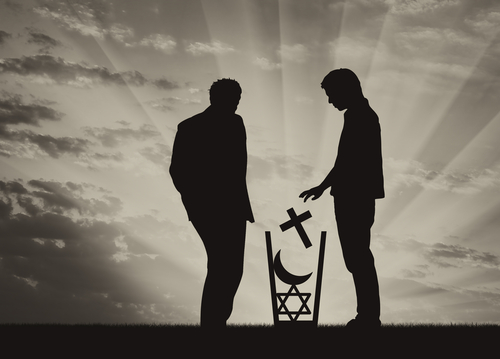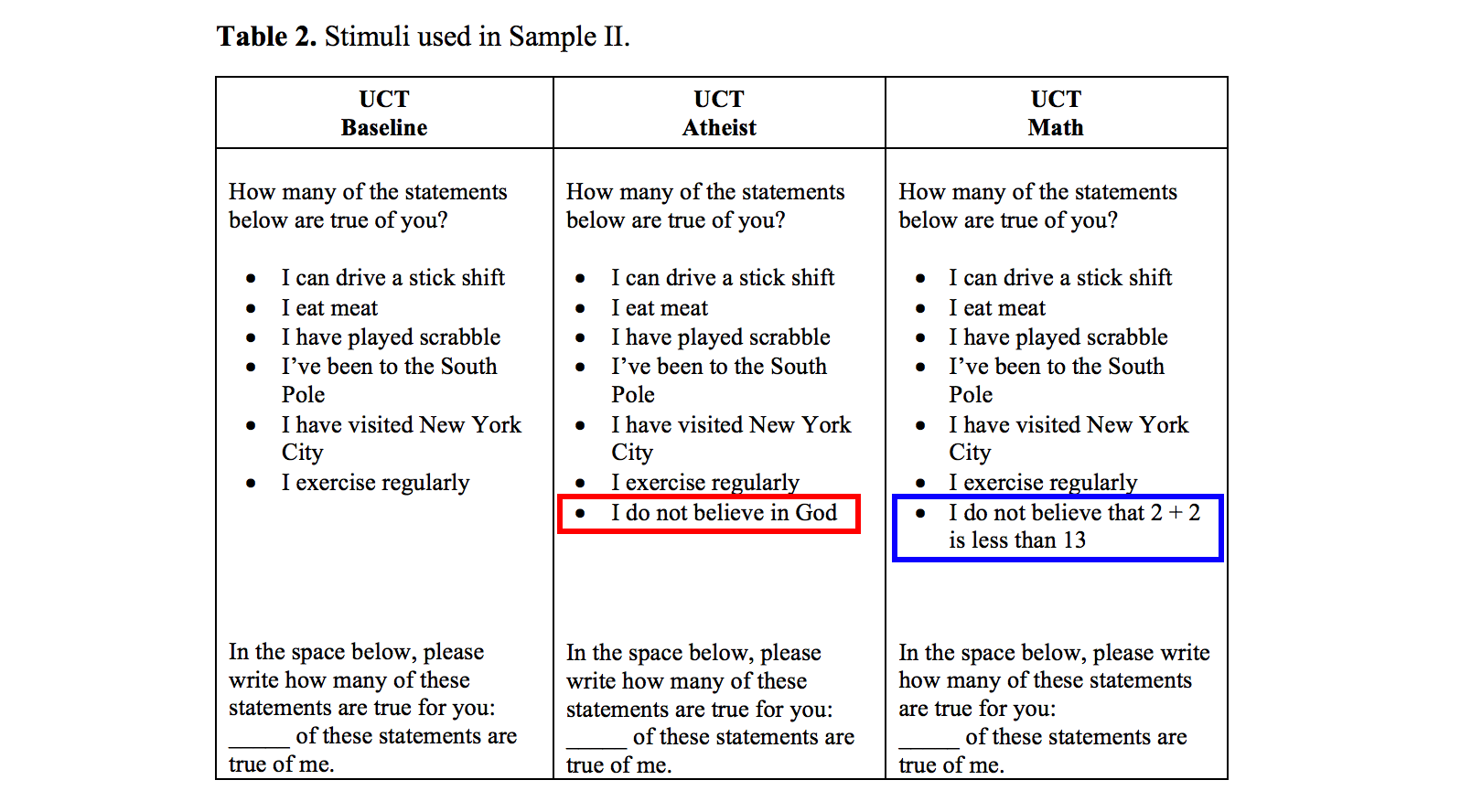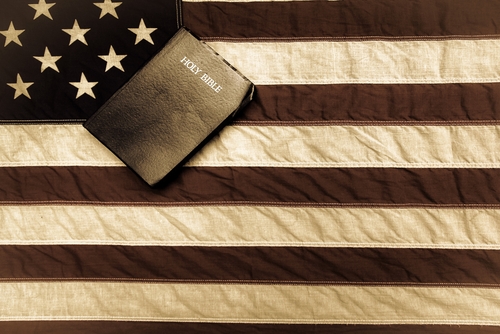How many atheists are there in the U.S.?
The most comprehensive numbers we’ve seen on the matter come from the Pew Research Center’s Religious Landscape Survey, which puts atheists at 3.1% of the population. (Don’t get that confused with the ever-growing 22.8% of Americans who have no religious affiliation at all; many of them still believe in a Higher Power.)
If you assume there are 324 million people in the country, we’re talking about more than 10 million atheists.
But there’s always been reason to doubt that number.

You have to assume there are people who don’t believe in God yet still consider themselves some variety of Christian because it’s the religion in which they were raised. There are also people who consider “atheist” a dirty word even if it’s accurate, so they don’t use that label. In fact, when Gallup asked people in 2016 if they believed in God, 9% of Americans said no. That’s a huge leap from the Pew finding and it might have happened because the word “atheist” wasn’t mentioned in the question.
It also doesn’t matter if the survey is done on a computer, where no one’s judging you. Signing off on the A-word has always involved hesitation.
No matter how you parse it, there’s reason to think the percentage of atheists has always been underestimated.
The question is whether there’s any way to get a more honest answer. That’s what University of Kentucky psychologists Will Gervais and Maxine Najle set out to find, and their results are awaiting publication in the journal Social Psychological and Personality Science. (Vox‘s Brian Resnick has an excellent rundown of the paper.)
It’s a bit ingenious how Gervais and Najle set out to find people who might not otherwise admit they’re atheists.
Skipping over a lot of the details here, they essentially asked people to look at a list of items like “I exercise regularly” and “I eat meat” and answer how many of those items are true.
Then, they asked a comparable group of people to do the same thing… but they added one more item to the list: “I do not believe in God.”
If all went according to plan, the increase in the average number of true statements would give us some insight into how many people didn’t believe in God. And this time, because that statement about God didn’t stand alone, maybe more people would be willing to tell the truth.
(Just for good measure, they ran the same experiment with one more group, but instead of asking an additional question about not believing in God — which could go either way — they asked a question about 2 + 2 being greater than 13 that everyone should’ve known was false. The wording was awkward but that’s another story.)

What did the researchers find?
Based on our results, we can state with around 99% certainty that more than 11% of Americans are atheists (as per Gallup’s estimate), and with around 93% certainty that more than 17% of Americans are atheists (our self-report estimate).
…
These indirect measures suggest that roughly one in four (26%) American adults may be atheists — 2.4 to 8.7 times as many as telephone polls (Gallup, 2015; Pew, 2015) suggest. This implies the existence of potentially more than 80 million American atheists. The disparity between self-report and indirectly measured atheism rates underscores the potent stigma faced by atheists… as even in an anonymous online survey, about a third of American atheists may be effectively “closeted,” even in anonymous telephone polls.
The margin of error is pretty large and the methodology is questionable (even that math question received a lot of wrong answers). But even with those caveats, there’s good reason to believe there are far more atheists than any survey has identified up to this point. Whether it’s 80 million of us might be questionable, but what’s important here isn’t the exact number but the realization that the numbers we have are much lower than they should be.
With better questions from researchers and less stigma from society, the atheists who are out there are eventually going to begin admitting it. All the more reason for those of us who can come out of the closet to do so — let’s make it easier for others to do the same.
(via Vox. Thanks to everyone for the link)




It’s Moving Day for the Friendly ..."
It’s Moving Day for the Friendly ..."
It’s Moving Day for the Friendly ..."
It’s Moving Day for the Friendly ..."